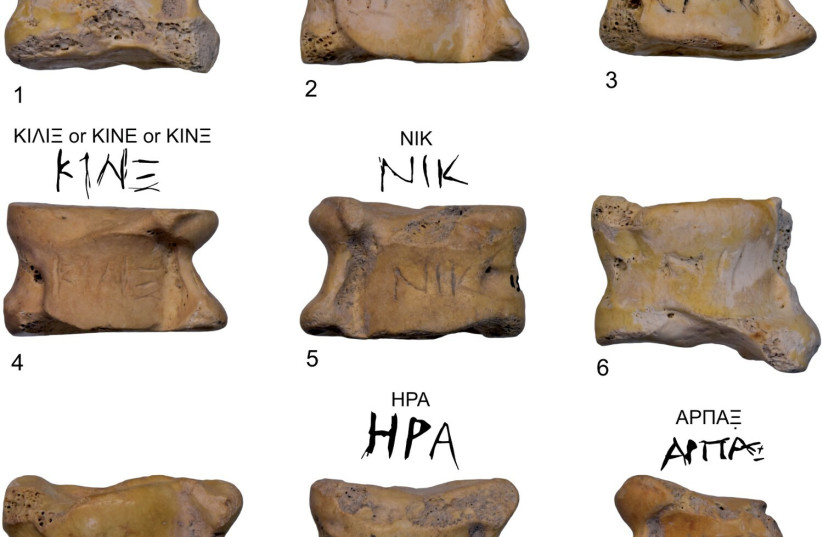A rare assemblage of animal knucklebones known as astragali, used in ancient Greek games and divination, was found in Beit Guvrin-Maresha National Park, according to a study published recently.
The study, which was conducted by archaeologists from institutes around Israel, was published in the peer-reviewed Levant journal.
The bones were mainly used by women and children for games, gambling and divination and date from the Hellenistic period 2,300 years ago.
What were astragali used for?
Many of the bones were engraved with the names of Greek gods that are associated with wishes and desire, such as Aphrodite, goddess of fertility, love and beauty; Eros, god of love; Hermes, god of travelers, thieves and merchants; Hera, goddess of marriage, women and family, and Nike, goddess of victory.

Other bones were engraved with instructions and game rules like “robber, stop, you are burnt.” A common game that has been recorded from that time was five stones, in which children would throw five astragali in the air and try to catch them all in hand, a game that has existed to this day.
Astragali were also used as tokens and charms. Often, they would be buried under the foundations of a house to bring prosperity and peace, and there are records of young women using them as tokens of marriage to mark their passage from maidens to married women.
The astragali discussed in the study were found to have had their shapes modified and were filled with lead.
“The assemblage of astragali from Maresha is very unique, specifically the large quantity and good quality, and the many inscriptions,” said Dr. Lee Perry-Gal of the Israel Antiquities Authority, who took part in the study. “The assemblage shows that in ancient times of distress, as today, people sought help from external factors, in magic and spells and in the world of the unknown. In the past, men, and especially women, struggled with an environment of uncertainty, death, childbirth and health issues, and tried to protect themselves with the help of magic.”
"The assemblage shows that in ancient times of distress, as today, people sought help from external factors, in magic and spells and in the world of the unknown."
Dr. Lee Perry-Gal
Perry-Gal added that children from the period have been known to be buried with similar bones because, as a popular game, they were believed to help accompany the children into the afterlife.
“This fascinating research sheds light on the life and customs in the ancient world and reminds us that people are regular people all over the world,” said Eli Eskosido, director of the Israel Antiquities Authority. “They dream and hope, and notwithstanding the harshness of daily life, they find time for playing and leisure.”
